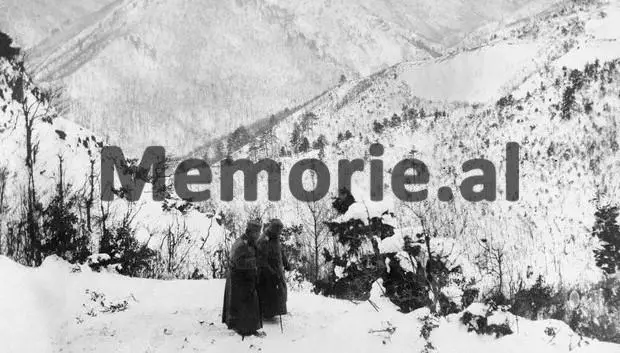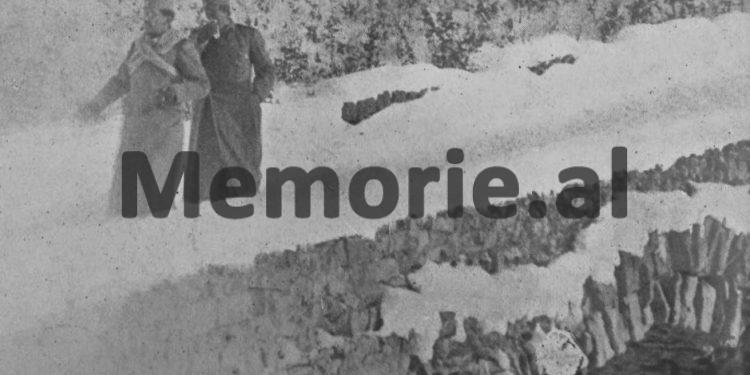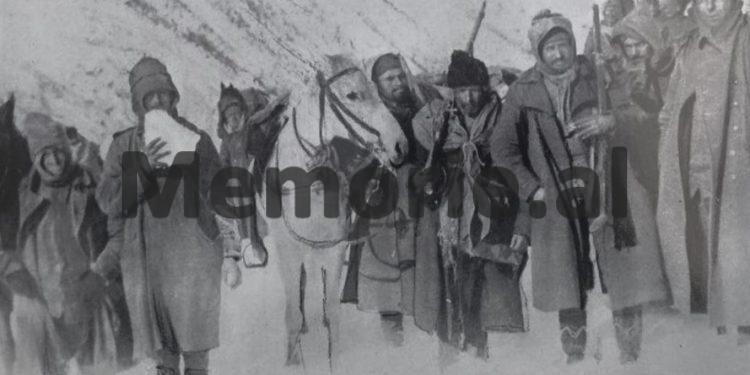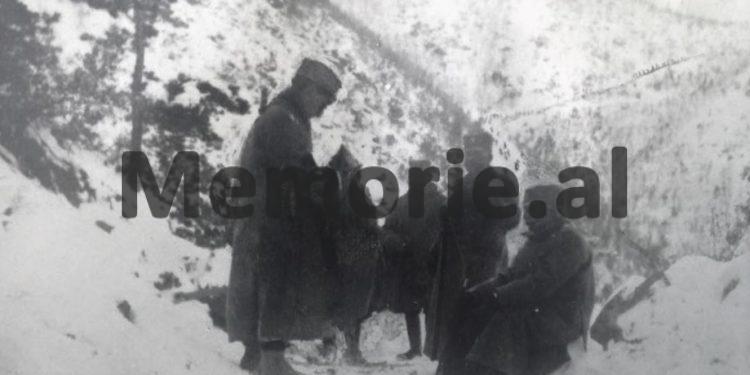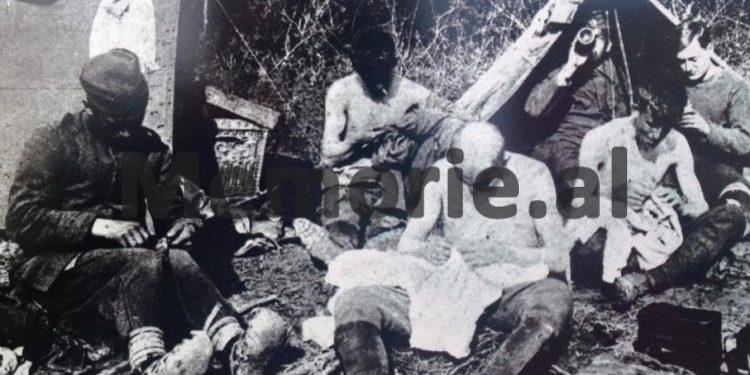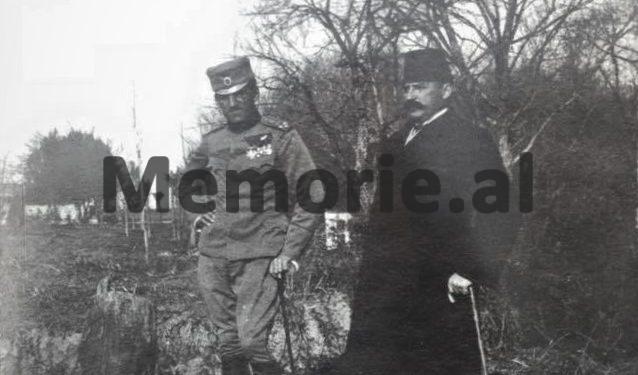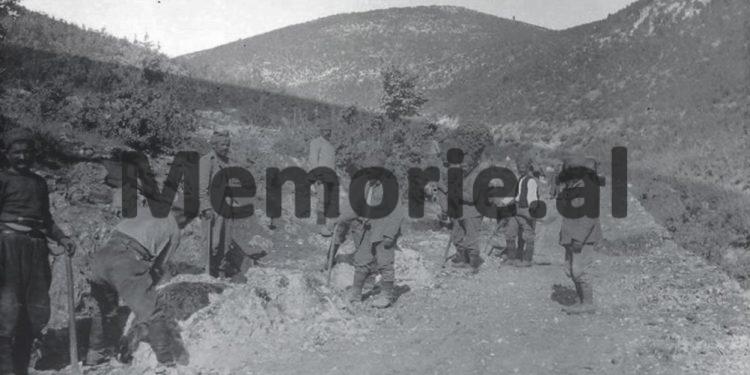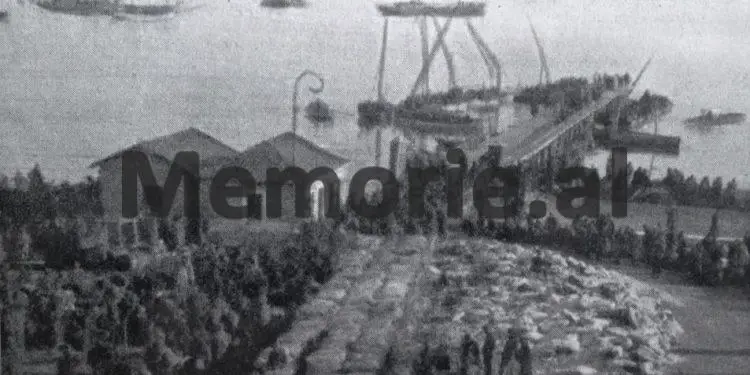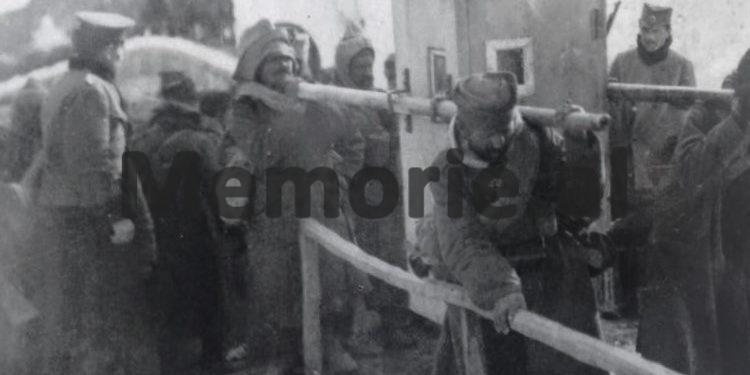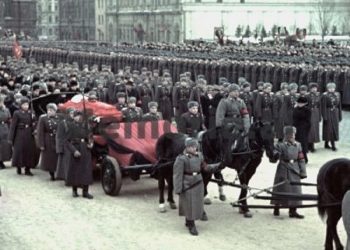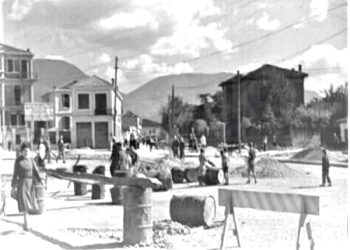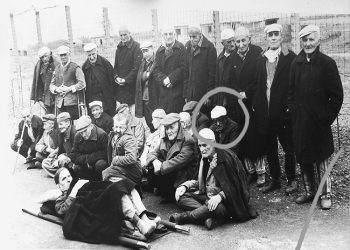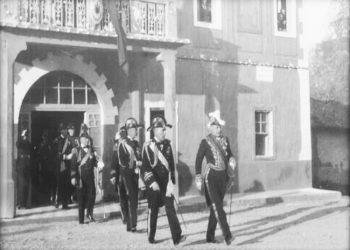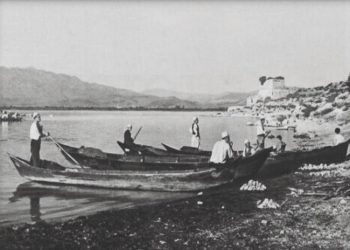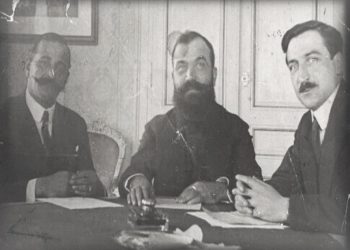Memorie.al publishes for the first time some rare photos from the march of the Serbian army in the Albanian territory, during the period of the First World War 1914 – 1918, when during these years, the Albanian lands became an arena of fighting between the two main blocs involved in this conflict. On one side were the French, Serbian, Greek, and Italian (Entente) troops, and on the other the Austro-Hungarian, and Bulgarian (Central Bloc) troops.
The march of these armies, and especially the Serbian one (as seen in these photos) was accompanied by massacres, burnings, looting, and destruction of the innocent Albanian civilian population, especially the concentrated part in the northern and north-eastern parts of the country… In the march of the Serbo-Montenegrin armies in Albania, at the head of them was the King of Serbia, Krajli Petar Karagjeorgjevic, together with his heir, Alexander.
They were forced to evacuate from their homeland, Serbia, to escape the siege of Austro-Hungarian forces, and would march in extremely difficult conditions and terrain, from the harsh winter of that year, to bitter frosts with temperatures. several degrees below zero. The troops would be regrouped in Thessaloniki after being evacuated by French and Italian ships, which had landed on the island of Corfu. Thousands of Serbs would lose their lives in this long march through the Balkan Peninsula, where many would die of starvation, disease, and extreme cold.
These troops would be participants in many tragic stories of the massacres they committed, over entire provinces inhabited by indigenous Albanians (including Kosovo). Many of these massacres were denounced in the press by the Russian correspondent for the Balkans, Leon Trotsky (one of the future communist leaders of the October Revolution) and Dimitrije Tuçovi, a well-known Serbian military man who dared to publish campaign episodes. extermination against Albanians.
The photos in question, which are published for the first time by Memorie.al, were taken from the catalog ‘War Albums, 1914-1918’ by the Serbian author, Andra Popovi../Memorie.al




